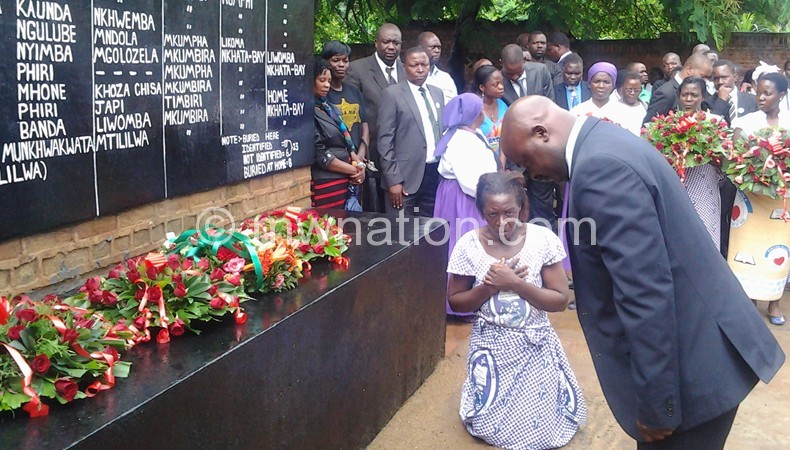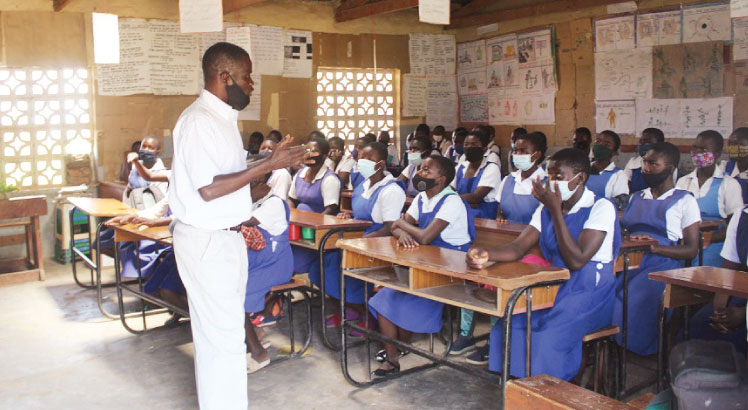Should March 3 victims be compensated?
The idea that human beings are entitled, as a matter of right, to an effective compensation has got a turbulent, controversial and incomplete background.
The 1948 Universal Declaration of Human Rights states that victims should have an effective remedy for violations of fundamental rights. The form of compensation has equally remained a major source of misunderstandings and arguments, largely bordering on whether accused governments or countries should be subjected to criminal jurisdiction for human rights violations.

After about six decades of stonewalling, the British government a few years ago agreed to compensate Kenyans who were tortured and abused by British colonial forces during the 1950s independence struggle.
The action has had broad implications for thousands of people who suffered under illegal and inhumane methods employed by Britain in silencing uprisings in other countries.
According to official papers archived at the United Kingdom’s top security outfit, the Her Majesty’s Government Communications Centre, the ill-treatment of Kenyans occurred with full knowledge and connivance of the colonial authorities.
Prior to his death, former President Bingu wa Mutharika, known for his daring, assigned law experts to investigate whether Britain compensated Malawian soldiers who fought in the Second World War.
The two scenarios have perhaps propelled some Malawians to start pushing Britain to compensate victims of the 1959 uprising which led to the massacre of over 31 people, the majority in Nkhata Bay.
British High Commissioner to Malawi, Michael Nevin, a few weeks ago said, while the United Kingdom regrets the loss of life, there had been “no discussion with the government of Malawi on this matter and do not consider the issues of compensation arise.”
John Chunda, 70, who claimed to have witnessed the killings, last week led a group of concerned citizens who submitted a petition to the British government, through the British High Commission in Lilongwe, demanding 100 million pounds in reparations.
He details the kind of torture some of his relatives suffered at the hands of the British colonialists in chilling tones.
“People were beaten to death by British prison guards in makeshift camps while others were simply shot dead at close range. People were beaten with clubs at the back of their necks for hours and unconscious people were laid side by side with corpses in hidden rooms,” Chunda said.
The torture, according to Chunda, went beyond mere beatings as both men and women were subjected to sexual abuse.
“The British government should recognise and accept that Malawians were subjected to torture and other forms of ill-treatment at the hands of colonial authorities. Some were detained in appalling conditions and women were sexually abused and men sodomised,” he said.
Chunda went on: “We are shocked to see that the British government has chosen to remain silent over our petition while we know records can be found about this as what happened in Kenya. If nothing happens we will take the matter to court just like our friends in Kenya did.
“After the death of these uncles their children and spouses struggled with in their lives and that’s why we want something to be done. All over the world war victims have sued or demanded compensation from perpetrating governments for human rights violations.”
During this year’s Martyrs Day commemoration, Member of Parliament (MP) for Nkhata Bay Central Ralph Mhone called on the British government to compensate the victims.
Mhone, a lawyer, said: “Our martyrs weren’t criminals and didn’t die in vain—they died fighting for independence and the freedom we are enjoying today.”
But renowned historian Desmond Dudwa Phiri feels the calls for compensation are unjustifiable.
“This will have a negative impact on the diplomatic relations between Britain and Malawi. We are already benefiting from their economic support which is enough compensation,” he says.
He also challenges the morality of compensating dead victims.
“The situation is a bit different with the Kenyan one where those compensated were only a few who were still alive whereas for us here almost all are dead. If we continue with this my fear is that we might end up with the same situation as we plunged ourselves in 2012 when we expelled the then British High Commissioner and the consequences thereof we all bore the burden. We need to apply morals in this argument,” advises Phiri.
Concurring with Phiri is Mathews Kalolo, a secondary school history teacher based in Kasungu, who describes the push as a grotesque scramble for money.
“It’s unfair to sue and punish the current British government for the wrongs of their forefathers. The fact that all victims are dead and no documents can be traced will make it impossible to prove individual claims and I feel this is extortion and blackmail. It only aggravates the condition and trauma,” he says.
Kalolo adds that the main responsibility of funding these compensations rests with the Malawi government.
“This is likely to pose extremely complex and politically sensitive challenges. Government simply needs to put in place long term and effective economic and education measures together with the civil society in order to improve livelihoods of the liberation struggle victims other than encouraging them to seek monetary compensation from Britain which will only solve their problems for a short time. Let government introduce micro grants to the victims or their dependants and children; that way they won’t think of being compensated,” he said.
Zondani Kondowe, a Mzimba-based administrator, thinks Parliament should take an active role in all this.
“It must start from Parliament and then a special committee should be setup because this is a sensitive and technical matter and I am sure Parliament would be duty bound for the victims get their compensation,” Kondowe said. n






The problem of politicians whom God didn’t call them to be servants, its like that, Without Knowledge and wisdom…Please sort out of the problem people are facing in your constituency forget about easy money.
I think malawian politics need young people. Anthu akulu akulu you are not thinking well …You want easy money….Do we appreciate what the British Gorvenment has been doing to malawians? do appreciate that when we are in trouble the british people are the first to help us like our own big brother…If MALAWI WAS BRITAIN AND BRITAIN MALAWI ..i don’t think Malawi we could have been helping the British.. NO..
Malawi needs politicians who can Love this country….My question still be WHY DO YOU WANT EASY AND BLOOD MONEY? Lets forgive and forget we are NEW generation…with NEW vision ..